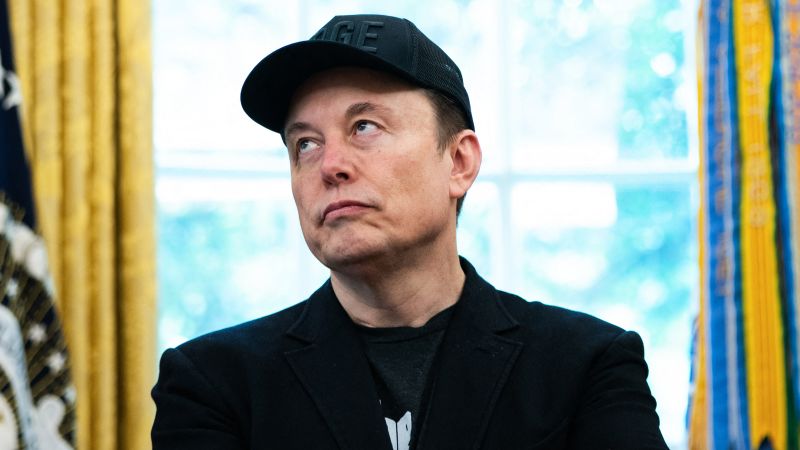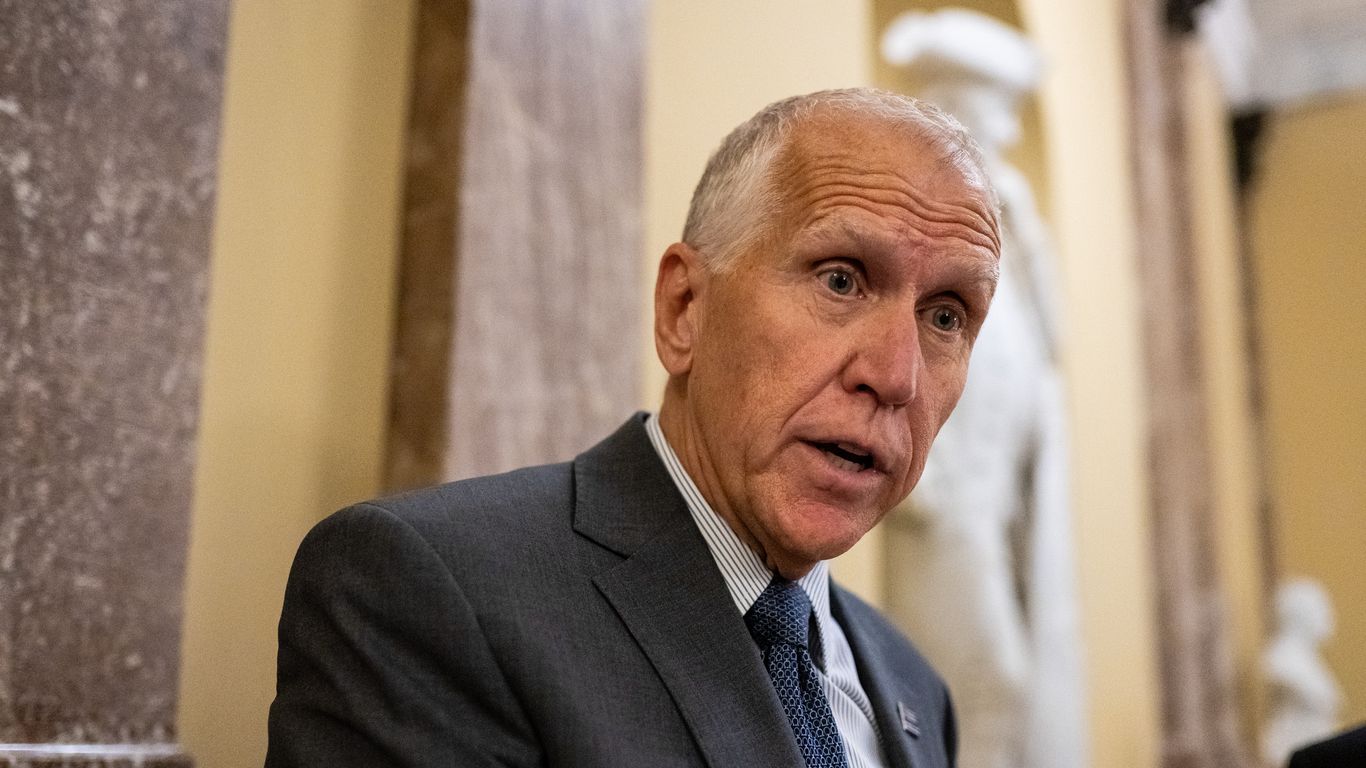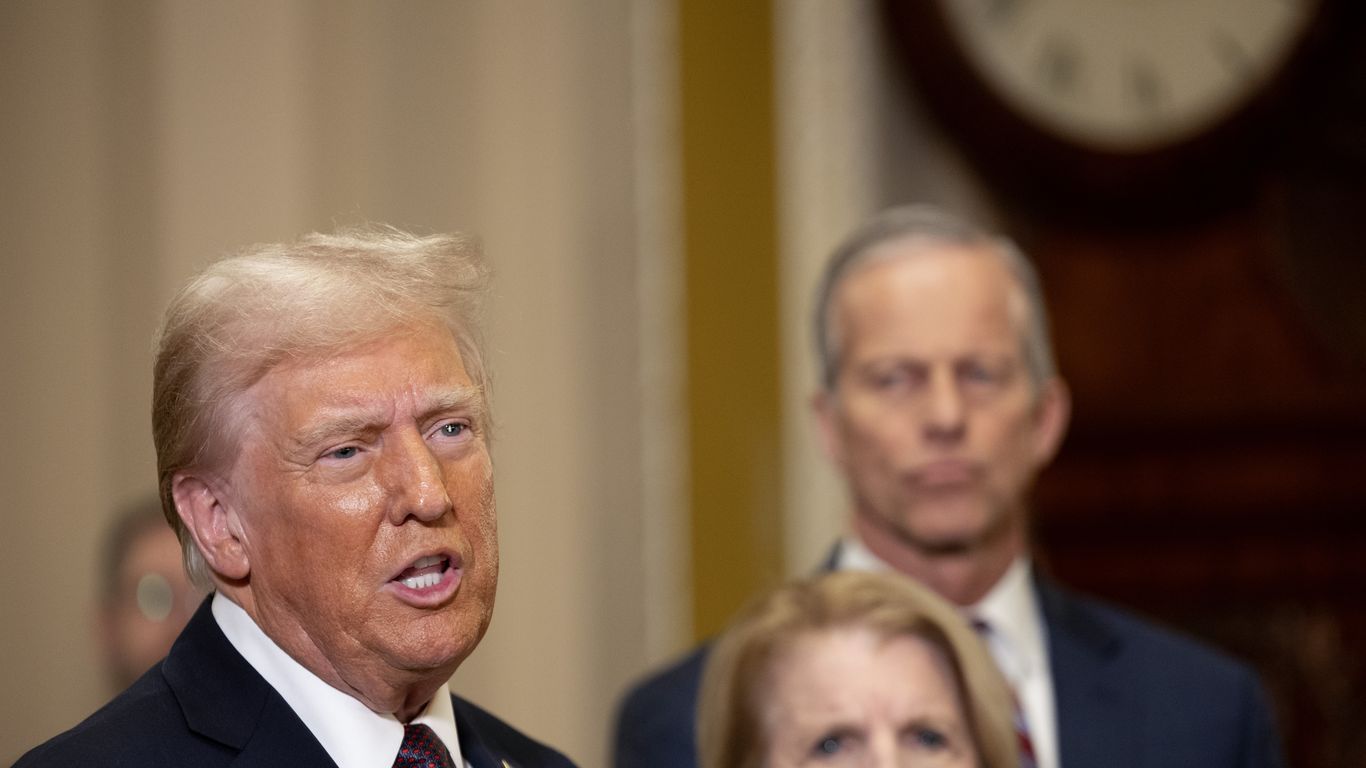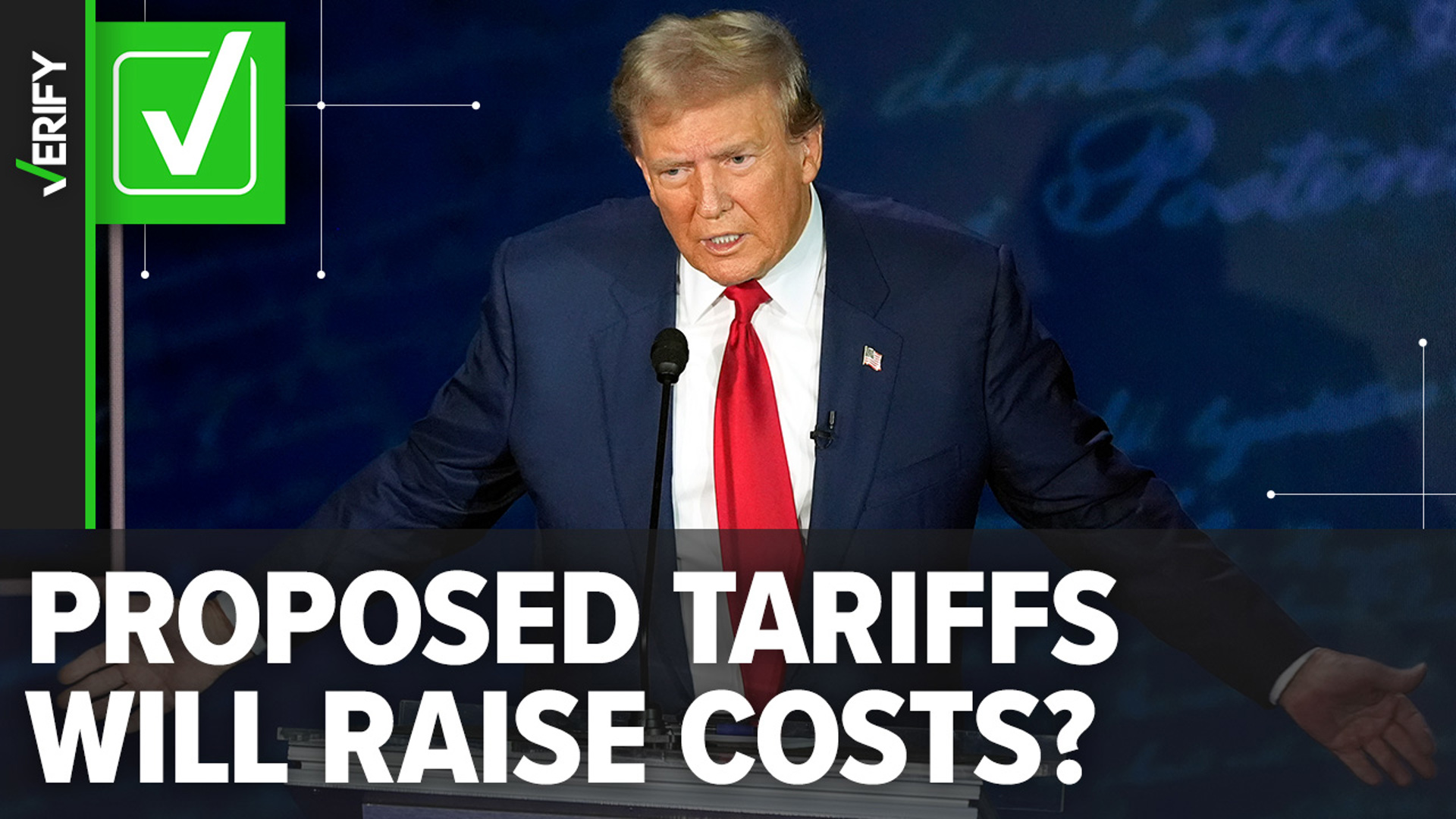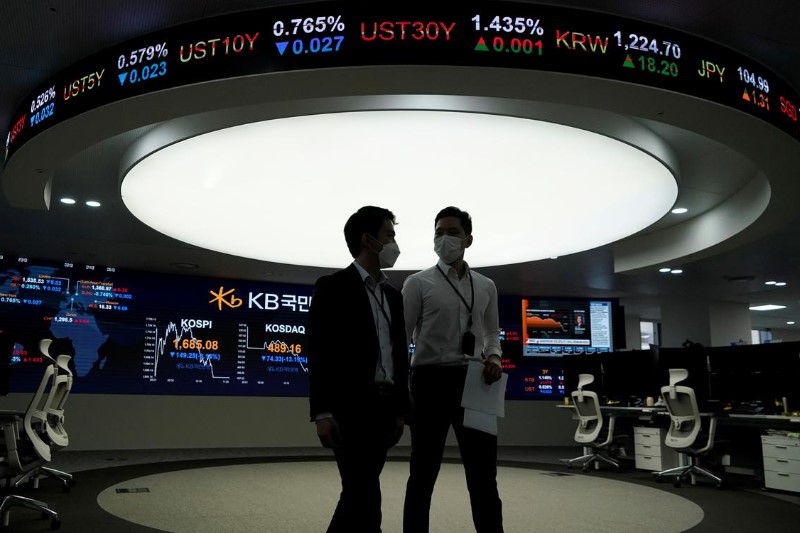Trump's Policies Weaken Dollar

Introduction
The U.S. dollar is currently facing a tough time, as President Donald Trump's spending bill and tariffs continue to weigh on its strength. The dollar is at its weakest against the euro since September 2021, causing concern for the economy and financial markets.
Background
The Trump administration has been pushing for a more protectionist approach, implementing tariffs on various goods from different countries. These tariffs have been met with legal battles and criticism, with many arguing that they could potentially harm the economy. However, the administration has continued to stand by their decision, with Commerce Secretary Howard Lutnick stating that the tariffs "are not going away."
In addition to the tariffs, the Trump administration has also been focused on tax reform, passing a sweeping tax bill in 2017. This bill, known as the Tax Cuts and Jobs Act, aimed to provide tax cuts for individuals and businesses, but has also been met with controversy and criticism.
Current Scenario
The U.S. dollar's weakness against the euro has been attributed to President Trump's tariffs and tax bill. The recent decision by a federal appeals court to keep the tariffs in place, for now, has only added to the uncertainty surrounding the economy. The court has agreed to fast-track the consideration of the case, bringing the issue to the forefront once again.
As for the tax bill, its impact is still being felt and is a major topic of discussion among leaders in the Middle East. During his recent trip to the region, President Trump met with leaders and discussed the impact of the tax bill on the global economy. He also visited a U.S. installation in Qatar, highlighting the importance of American involvement in the region.
On the other hand, some leaders, such as Israeli Prime Minister Benjamin Netanyahu, have been faced with tough decisions. With the U.S. taking a more isolationist approach, some leaders are presented with a historic opportunity to take action, but also face the potential consequences of doing so.
Conclusion
The U.S. dollar's weakness, as a result of Trump's policies, has caused concern for the economy and financial markets. As the legal battles and discussions surrounding the tariffs and tax bill continue, it remains to be seen what the future holds for the dollar and the global economy. Only time will tell if these policies will have a positive or negative impact in the long run.
About the People Mentioned
Donald Trump
Donald John Trump, born June 14, 1946, in Queens, New York, is an American businessman, media personality, and politician. He graduated from the University of Pennsylvania’s Wharton School in 1968 with a degree in economics. In 1971, he took over his family’s real estate business, renaming it the Trump Organization, through which he expanded into building and managing skyscrapers, hotels, casinos, and golf courses. Trump gained widespread fame as the host of the reality TV show *The Apprentice* from 2004 to 2015, which helped establish his public persona as a successful entrepreneur. Trump entered politics as a Republican and was elected the 45th president of the United States, serving from 2017 to 2021. His presidency was marked by significant policy actions including tax cuts, deregulation, the appointment of three Supreme Court justices, renegotiation of trade agreements (notably replacing NAFTA with the USMCA), and a focus on immigration control including border wall expansion. He withdrew the U.S. from international agreements such as the Paris Climate Accord and the Iran nuclear deal, and engaged in a trade war with China. His administration’s response to the COVID-19 pandemic was criticized for downplaying the virus’s severity. Trump was impeached twice by the House of Representatives—first in 2019 for abuse of power and obstruction, and again in 2021 for incitement of insurrection—but was acquitted by the Senate both times. After losing the 2020 election to Joe Biden, Trump challenged the results, culminating in the January 6, 2021, Capitol riot. He remains a central figure in American politics, having won the 2024 presidential election and returned as the 47th president in 2025, continuing to promote policies aimed at economic growth, border security, and military strength[1][2][3][4].
Howard Lutnick
Howard W. Lutnick is an American businessman and the current U.S. Secretary of Commerce, appointed in 2025. He is best known as the chairman and CEO of Cantor Fitzgerald, a leading financial services firm, as well as chairman and CEO of BGC Group and Newmark Group, major players in brokerage, financial technology, and commercial real estate. Born on July 14, 1961, Lutnick graduated from Haverford College with a degree in economics and joined Cantor Fitzgerald in 1983, rising to president and CEO by 1991 and chairman in 1996. Lutnick's career was profoundly shaped by the September 11, 2001 terrorist attacks, which destroyed Cantor Fitzgerald's headquarters in the World Trade Center, killing 658 of its 960 New York employees, including Lutnick’s brother. In response, he led the company’s rebuilding efforts and founded the Cantor Fitzgerald Relief Fund, which has raised over $180 million to support victims' families and aid disaster relief worldwide. His resilience earned him recognition such as Financial Times’ Person of the Year in 2001 and Ernst & Young’s U.S. Entrepreneur of the Year in 2010. Under Lutnick’s leadership, Cantor Fitzgerald and its affiliates employ more than 10,000 people globally and hold extensive financial and real estate assets. He has driven strategic growth through acquisitions and innovation, including the 2004 spin-off of BGC Partners and the 2011 acquisition of Newmark, which later went public. Politically, Lutnick shifted from Democrat to Republican, closely aligning with Donald Trump. In 2024, he co-chaired Trump’s presidential transition team and was nominated by Trump as U.S. Secretary of Commerce, confirmed by the Senate in early 2025. In this federal role, Lutnick oversees economic data, trade enforcement, industrial policy, and climate monitoring, supporting policies like tariffs and domestic industry investment. Lutnick is also active in philanthropy and serves on the board of the National September 11 Memorial & Museum[1][2][3][5][6][7][8].
Benjamin Netanyahu
Benjamin Netanyahu, born on October 21, 1949, in Tel Aviv, Israel, is a prominent Israeli politician and diplomat who has served as Prime Minister of Israel three times (1996–1999, 2009–2021, and from 2022 onwards). He began his career in the Israeli military's special operations and later transitioned into politics in the late 1980s, joining the Likud party[1][2]. Netanyahu first became prime minister in 1996, during which time he signed the Hebron and Wye Accords, advancing peace efforts with the Palestinians. His administration focused on economic reforms such as government privatization, liberalizing currency regulations, and reducing deficits. After losing the 1999 election, he served as foreign minister and finance minister before reclaiming the Likud leadership in 2005[1][3][4]. Returning as prime minister in 2009, Netanyahu formed a national unity government and proposed a demilitarized Palestinian state recognizing Israel as the Jewish state, emphasizing security concerns. His tenure was marked by fluctuating peace negotiations with the Palestinians and contentious policies including settlement expansions. He also maintained a hawkish stance on Iran and supported the Iraq war[1][3][5]. In 2022, Netanyahu made a political comeback as prime minister, leading a coalition that included far-right parties. His leadership during this period has been pivotal amid the 2023–2024 Israel-Hamas conflict, with significant domestic and international implications[2]. Netanyahu is Israel’s longest-serving prime minister and remains a central figure in Israeli politics, known for his strong security policies, economic reforms, and complex role in the Israeli-Palestinian conflict. His career has been marked by both political resilience and controversy, reflecting his enduring influence on Israel’s domestic and foreign affairs[2][3][5].
About the Organizations Mentioned
Trump administration
The **Trump administration** refers to the executive branch of the U.S. federal government during Donald J. Trump’s presidency, initially from January 20, 2017, to January 20, 2021, and resuming with his second term starting in 2025. It was characterized by a mix of aggressive domestic policies, significant judicial appointments, and a distinct foreign policy approach that emphasized "America First" principles[4][8]. The administration’s key activities included **tax reform**, notably passing the $3.2 trillion Tax Cuts and Jobs Act, which represented the largest overhaul of the U.S. tax code in decades[5]. Trump also renegotiated trade agreements with major economies including Mexico, Canada, China, Japan, and South Korea, prioritizing bilateral deals over multilateral ones such as the Trans-Pacific Partnership (TPP), which the administration withdrew from early on[1][2]. The administration sought to protect American jobs by restricting cheap foreign labor and influencing agencies like the Tennessee Valley Authority to retain American workers[5]. On the judicial front, the Trump administration appointed over 200 federal judges, including three Supreme Court justices—Neil Gorsuch, Brett Kavanaugh, and Amy Coney Barrett—shaping the judiciary for years to come[4]. These appointments were among the most significant achievements, influencing U.S. law on multiple fronts. In foreign policy, the administration pursued a controversial agenda: it imposed travel bans on several predominantly Muslim countries, withdrew U.S. troops from northern Syria, and supported Saudi Arabia militarily despite congressional opposition related to the Yemen conflict[1][3]. It also fostered new international technology alliances, such as securing commitments from allies to exclude Chinese telecom giant Huawei from 5G infrastructure and signing AI cooperation agreements with the UK[5]. The Trump administration faced substantial political turmoil, including two impeachments by the House of Representatives—first in 2019 over Ukraine dealings, and again in 2021 following the January
Commerce Secretary
The **Secretary of Commerce** is the head of the United States Department of Commerce, serving as the principal advisor to the president on matters related to commerce, economic growth, and trade. This cabinet-level position oversees policies and programs that promote both domestic and international business development, fair trade practices, and innovation in technology and industry[2][3][7]. Historically, the Department of Commerce was established in 1913 after separating from the Department of Commerce and Labor, reflecting the growing importance of commerce in the U.S. economy. The Secretary of Commerce is appointed by the president with Senate confirmation and manages a broad portfolio that includes economic development, export administration, intellectual property rights, and standards and technology advancement[2][4]. The department’s mission is to foster, promote, and develop U.S. commerce, supporting business growth, job creation, and technological advancement[4]. Key achievements of the Secretary and the Department include managing federal programs to promote economic development, administering export licenses, protecting intellectual property via patents and trademarks, and supporting minority and small businesses. The department also compiles vital economic statistics and helps ensure compliance with international trade treaties[4][5]. The Secretary directs the department’s various offices such as the Office of the Secretary, Office of Business Liaison, and the National Institute of Standards and Technology (NIST), which plays a crucial role in technological standards and innovation[4][5]. Currently, the Secretary of Commerce leads a complex organization that integrates policy formulation, regulatory oversight, and program administration to sustain U.S. economic competitiveness in a globalized market. This includes embracing technology-driven industries and addressing challenges related to trade and economic equity[2][4][5]. The role remains central to shaping U.S. business and technology policy, making it a pivotal position for those interested in commerce and economic affairs.
Middle East
The Middle East is not an organization but a region that encompasses a diverse array of countries, each with its own unique history, culture, and economic profile. However, organizations and initiatives within the Middle East play a significant role in shaping the region's economic, political, and technological landscape. Here's a summary of key aspects related to organizations and developments in the Middle East: ## Overview of Organizations and Initiatives The Middle East is home to numerous organizations that focus on economic development, political stability, and technological innovation. For instance, the **World Economic Forum (WEF)** hosts annual meetings that include discussions on regional challenges and opportunities, bringing together leaders from across the Middle East to address pressing issues like conflict resolution and economic growth[2]. ## History and Key Achievements Historically, the Middle East has been a hub for trade and cultural exchange, with many countries playing significant roles in global commerce. Organizations like the **Gulf Cooperation Council (GCC)** have facilitated economic integration among member states, promoting regional stability and cooperation. ## Current Status In 2025, the Middle East continues to face challenges such as political instability and economic downturns, compounded by global uncertainties[1][3]. Despite these challenges, there are efforts towards de-escalating conflicts and fostering dialogue, as seen at the WEF Annual Meeting 2025[2]. The region is also experiencing shifts in power dynamics, with Sunni groups gaining influence while Shia factions linked to Iran have weakened[1]. ## Notable Aspects - **Economic Growth**: The region's economic growth is projected to rise in 2025 and 2026, albeit at a slower pace due to global uncertainties and conflicts[3]. - **Technological Advancements**: The Middle East is investing in technological cooperation, particularly in AI, as evident from President Trump's visit to the region in May 2025[4]. - **Human Development**: The region is undergoing significant demographic and technological changes, requiring inclusive policy choices to address
